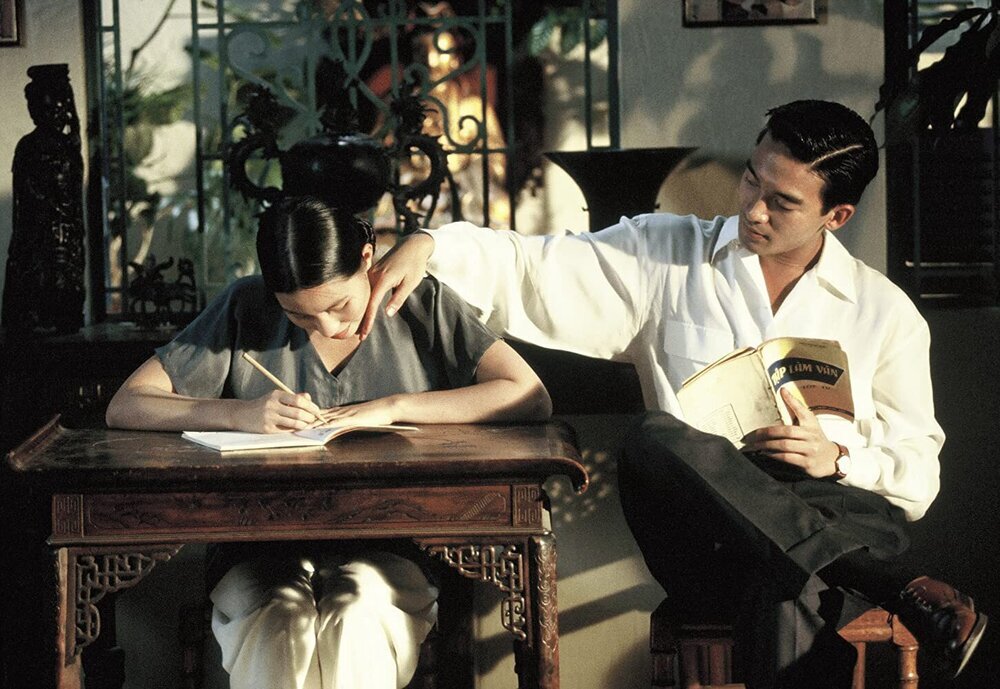April: Foreign Language Oscar Submissions IV
April: Foreign Language Oscar Submissions IV, FLMTQ Releases 235-239
During the month of April Filmatique presents Foreign Language Oscar Submissions IV, a collection of films from Tunisia, Palestine, Vietnam, Switzerland, and Egypt—nations that have rarely, if ever, been nominated for the award.
Leila Bouzid's debut feature As I Open My Eyes traces a young woman's struggle to navigate her family's conservative values and her dreams of pursuing a musical career amidst the surveillant atmosphere of pre-revolutionary Tunisia, while Mohamed Diab's Clash encounters the Arab Spring's aftermath from the vantage point of a police truck as protests erupt across Egypt. The Divine Order dramatizes an unassuming Swiss housewife's transformation into an activist for female suffrage in Europe's oldest democracy, where women were denied the right to vote until 1971. Celebrated Palestinian filmmaker Hany Abu-Assad's Omar is an award-winning love story set in the occupied West Bank. To coincide with this year's Academy Awards ceremony, on Sunday, April 25th, Filmatique will launch a special screening of The Scent of Green Papaya, the only Vietnamese film ever to be nominated for the Oscar.
In the 63 years since the Academy Award for Best International Feature Film has existed, only 26 nations have ever been represented onstage. Filmatique's Foreign Language Oscar Submissions IV series seeks to present a more diverse and expansive vision of international cinema by celebrating films from underrepresented nations.
//
As I Open My Eyes, Leyla Bouzid (2015)
As I Open My Eyes, Leyla Bouzid / Tunisia-France-Belgium, 2015
Farah has just finished high school and is preparing to enter university. While her parents have traditional aspirations for her, Farah is spending her summer performing in a political rock band, while carrying out a clandestine affair with one of her bandmates. Desperate to protect her daughter, Farah's mother attempts to intervene—yet Farah will not have her creativity stifled. Soon, she learns the police are watching her.
Set in the months leading up to Tunisia's Jasmine Revolution, As I Open My Eyes focalizes the stakes of the Arab Spring through a nuanced account of one young woman's search for freedom. Leyla Bouzid's feature debut premiered at the Venice Film Festival's Giornate degli Autori, where it won the Label Europa Cinemas Award; Dubai, where it won Best Fiction Film; and Carthage, where it won the FIPRESCI Prize. The third Tunisian film ever to be submitted for the Oscars, As I Open My Eyes is a New York Times Critics' Pick.
Clash, Mohamed Diab (2017)
Clash, Mohamed Diab / Egypt-France-Germany, 2017
Egypt, 2013. Two years after the Arab Spring, mass protests are roiling the country. A police van patrols the city, arresting demonstrators from opposing factions—members of the recently-ejected Muslim Brotherhood, supporters of the newly implanted military government, apolitical bystanders. As the sun blazes beyond the confines of the vehicle, and uprisings rage outside, this motley group of individuals is forced to confront their differences.
Offering a cross-section of Egyptian society from the vantage point of a single police vehicle, Clash is a tense and provocative political thriller. Mohamed Diab's second feature film premiered at the Cannes Film Festival; Valladolid, where it won Best Cinematography and Best New Director; and Zagreb, where it won Best Film. Clash was Egypt's official submission for the 89th Academy Awards—the country has never been nominated.
The Divine Order, Petra Volpe (2017)
The Divine Order, Petra Volpe / Switzerland, 2017
It's the 1970s, and in Switzerland women cannot vote. Despite a failed referendum in 1959, and years of social upheaval, universal suffrage has not been established in Europe's oldest democracy. Nora, a dutiful housewife, never had much opinion on the subject—until one day her husband forbids her from taking a part-time job. Soon she has become the face of the local suffragette movement, convincing the women in her village to go on strike.
A fascinating, feel-good dramedy about female liberation, The Divine Order was Switzerland's official submission to the 90th Academy Awards. Petra Volpe's second feature film premiered at the Locarno Film Festival; Tribeca, where it won Best Actress; Gijón, where it won Best First Feature Directed by a Woman; and Mill Valley, where it won the Audience Award.
The Scent of Green Papaya, Tran Anh Hung (1993)
The Scent of Green Papaya, Tran Anh Hung / Vietnam-France, 1993
In 1950s Saigon, ten-year-old Mui obtains a job working as a servant for an affluent Vietnamese family. The menial nature of her work belies Mui's growing enchantment with the sensuous beauty of her surroundings. Ten years later, the family has fallen on hard times, leading Mui to change households. Working for a pianist, a family friend of her former employers whom she had always admired, Mui finds romance in the unlikeliest of places.
Attuned to the lush textures of antebellum Vietnam, The Scent of Green Papaya charts a society's slow and quiet decline alongside a young woman's romantic blossoming. Tran Anh Hung's debut film premiered at Toronto, BFI London, and the Cannes Film Festival, where it won the Camera d'Or. The Scent of Green Papaya is the first and only Vietnamese film to be nominated for the Academy Award for Best International Film.
Omar, Hany Abu-Assad (2013)






